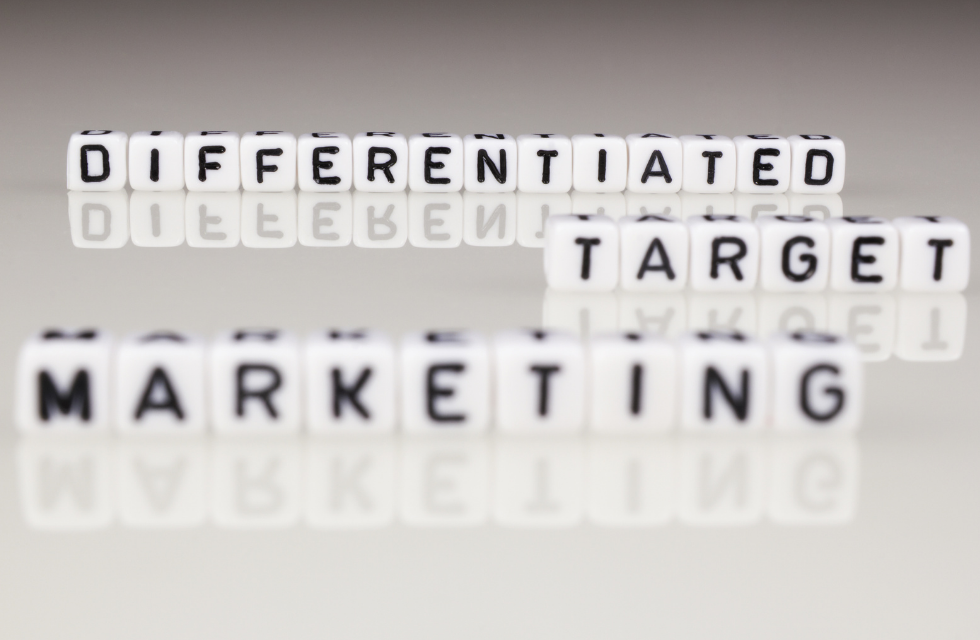Differentiation is separating a product or service from that of its competitors. Companies commonly use this marketing strategy to ensure their products do not overlap with those of a competitor, leading to a decrease in customer loyalty and sales.
Social media has changed the way companies can implement differentiation strategies. Consumers use social media platforms to share content and engage with one another, thus making it easier for them to choose between various brands of similar products.
Let us take a closer look at differentiation in marketing:
1) What is Differentiation?
2) Differentiation vs. Positioning
3) Differentiation Strategies
4) Fundamentals of Differentiation in Marketing with Example
5)Examples 1 &2
6) How to Implement Differentiation in Marketing?
7) Why differentiation is essential in marketing?
8) How is Differentiation the essence of Marketing?
9) How can you differentiate your product or service from the rest of the market?
10) How to bridge the gap between customer and marketer with differentiation?
What is Differentiation?
Differentiation is a marketing tool used to distinguish a product from others in the same category. It contrasts with other marketing tools such as positioning and branding.
There are several ways in which you can differentiate your goods or services. You could sell them at a lower price than those offered by competitors, provide more value than they do, or create new markets for products that were previously unsold.
You could also reorder the way your goods or services are presented: use an unusual color scheme for packaging, for example, or unusually show them on the shelves of shops, like arranging them in alphabetical order rather than by type.
Marketing is the process of planning and executing the conception, pricing, promotion, and distribution of ideas, goods, and services to create exchanges that satisfy individual and organizational objectives. Differentiation is a marketing strategy used to stand out from competitors by focusing on what makes your product or service unique in the marketplace.
Differentiation vs. Positioning
To better understand differentiation in marketing, we need to first look at the concept of positioning. Positioning is a tool to differentiate a company's products or services from its competitors. It focuses on how you position your product or service within the marketplace to meet the needs of your target market. It answers the question, "Where do you place your product?"
The process of identifying a unique selling point (USP) for your goods or services is "positioning", whereas differentiation is what you do once you have placed your USP. Differentiation means presenting the features and benefits of your goods or services in a way that differentiates them from other similar goods or services.
Positioning is often confused with differentiation because they are similar strategies to help a company develop an identity within its target market. However, positioning deals more with creating a new market position for a product or service that wasn't previously available than it does about differentiating an existing good or service from others. Take Apple's iPod as an example. When it launched in 2001, it was one of the first MP3 players available on the market. Because of this, Apple was able to compete in an entirely new market segment that hadn't previously existed
Marketing differentiation is crafting unique products and services to attract and retain customers. Companies that use marketing differentiation can differentiate between their offerings and competitors in several ways, including price, quality, service, innovation, and accessibility.
Differentiation Strategies
- Price is one of the most common ways businesses differentiate themselves from competitors. Sometimes this differentiation comes from price wars among competitors, but it comes from companies offering low prices to attract more customers. Some businesses only sell their products online to keep the price lower than if the products were sold in stores
- Quality is another common way marketing differentiation occurs. While it's not always possible to be the highest quality product on the market, some companies can distinguish themselves with higher or unique quality. For example, a luxury car manufacturer might set itself apart by using only high-quality materials in its vehicles
- Service sets many companies apart from their competition, particularly in industries where personal relationships are essential (such as real estate). Providing excellent service is a crucial differentiator for many businesses because adding this value proposition increases customer loyalty. A company might give excellent service at no charge as a way to stand out from competitors
Fundamentals of Differentiation in Marketing with Examples
Suppose you are an entrepreneur in the process of creating a new product or service. In that case, the chances are that your competitors have already done their homework and have introduced similar options in the market. The best way to make your product stand out is by making it unique.
The first step towards doing this is understanding what makes your product unique. What's your USP? Your unique selling proposition is part of your marketing plan that differentiates you from the competition and makes people want to buy from you rather than someone else.
Make a list of all the unique things about your business, think about how each of them might be communicated to customers, and then edit your list until you have five points that you feel confident will make potential customers sit up and take notice.
For example, Coca-Cola is differentiated through its secret recipe, which allows it to compete with other soft drink companies.
There are a lot of ways to differentiate in the marketing world. One way is to find a market that hasn't been tapped yet. Another way is to try and create a product for an existing market that is better than anything else on the market. The last way is to find a current niche and do them better than anyone else.
Trying to create a better product than anything else on the market would probably be easier for you if you were rich, but not everybody has money. So if you want to differentiate your product by doing it better, how can you do that without spending a fortune? Well, here are some examples of how people have done this with their products:
For example, Apple Inc., which makes an innovative range of computer products such as iPods, Macs, etc., has differentiated itself in the market by concentrating on enhancing customer experience in areas like ease of use, portability, reliability, and style.
Example 1: Coca-Cola's 'taste for life' campaign
Coca-Cola's taste for life campaign aimed to promote the product without directly attacking its competitor Pepsi uniquely. The focus was on how Coca-Cola could be more than just a drink and a means of entertainment and enjoyment.
The message they communicated was that enjoying Coca-Cola is not just about drinking it; it could be many things like meeting friends, talking with family, etc.
The campaign focused on building strong emotions associated with consuming Coca-Cola instead of rational information about the product itself.
For instance, one ad made it look like someone had died and gone to heaven because he got to drink 'pure happiness' (Coca-cola). Another cleverly placed ad portrayed two people saying how much they enjoyed spending time together whilst sharing a drink rather than talking about work or any other problems.
Example 2: Nikon- What do you 'see'
Nikon has used its brand name as a USP since its inception. Nikon stands for cameras, and it has established itself as the leading brand in the camera market over time because customers recognize it.
If we look at Nikon's advertising on TV, the company uses actors and actresses to promote its products because these people represent an ideal that many aspire to emulate. The film star and model appeal to a wide range of customers from all age groups with their personality, glamour, and style. The advertising messages are intended to convey a sense of quality, high performance, and reliability that Nikon cameras provide.* This positioning strategy has been successful for Nikon because its advertising appeals to different target audiences through a common theme of aspiration, achievement, and success.
The company differentiates through three ways:
- For starters, it focuses on quality, performance, and precision
- It also distinguishes itself through its history and heritage
- The third way that Nikon differentiates itself is through its product placement
How to implement Differentiation in Marketing?
How can your company differentiate itself from its competitors? How can you make your product stand out amongst the crowd? These are questions that everyone in business faces, but not everyone knows how to answer them. Differentiation is a strategy to create uniqueness and make your products stand apart from others. There are several ways to do this, and each method has its own set of benefits and drawbacks.
We know that differentiation is an essential strategy for marketing, and if you want your product to sell well, you need to differentiate it from other products. Differentiation can be done in various ways like:
A)Targeting a different segment of customers
B) Introducing a new product or concept
C) Using some unique strategy or tactics
Differentiation can help organizations improve their competitive advantage by differentiating themselves from competitors in their target market.
Why is differentiation significant in Marketing?
A business needs to offer a product or service different from its competitors to get the customer to switch from one company to another. Differentiation is a simple but powerful concept. It means that your product or service is doing something that competitors aren't doing or doing it in a way that competitors can't do.
For example, look at the difference between Coca-Cola and Pepsi. Both are cola products. Both have similar packaging, advertising, and logos. But you'll notice that they taste different. Coke uses sugar, while Pepsi uses high fructose corn syrup as its sweetener. Coca-Cola offers a unique attribute -- the taste of natural sugar --and charges more for this product differentiation than Pepsi does.
Differentiation helps companies create brand loyalty among consumers. Once you have loyal customers, they will be less likely to shop around for lower prices, making it easier for you to raise your prices later without losing customers.
A differentiation strategy is pursued when a company wants to sell its product rather than compete with other companies that offer similar products.
Trying to create a differentiation strategy without having some competitive advantage is impossible. To effectively differentiate your product and gain market share, you must possess some unique characteristic or feature that makes your product different from and superior to the competition. The following sections describe the two effective differentiation strategies, cost-based and value-based.
There are no two products that are precisely similar in the market, but still, customers are going for products due to marketing strategies. An effective marketing strategy can differentiate your product from competitors and help you gain a competitive advantage. There are many examples of differentiation in marketing.
How is differentiation the essence of Marketing?
Differentiation is the essence of marketing. You choose to differentiate your product over what you need to have an obvious idea. It could be a unique feature or certain quality in the product. You need to convince your customers to try out the product and to REPURCHASE from you repeatedly and again.
Note that differentiation can be done in MANY ways like:
1) Unique features in the product (Features & Benefits)
2) Unique Quality in the product (Quality & Benefits)
3) Unique Delivery Channel (Delivery Channel & Benefits)
4) Unique Pricing (Pricing Strategies)
How can you differentiate your product or service from the rest of the market?
Models of differentiation often include transaction utility, product attributes, and price. Transaction utility is the perceived value of buying a product instantly, rather than having to wait to get it through a mail-order house or over the counter at a retail store.
Product attributes include product quality, brand name recognition, and user-friendliness. However, product attributes should be consistent across brands within the same industry. Differentiation occurs when one company can produce a better quality product for the same price as its competitors' products.
Price differentiation refers to setting prices based on cost plus a mark-up instead of competition-driven price cutting. These strategies help companies build customer loyalty by establishing a reputation for high quality and value.
How to bridge the gap between customers and marketers with differentiation?
Marketing aims to know and understand the customer's needs, wants and desires better than any competitors to develop the best product or service offering that will satisfy them.
The gap between the marketer who understands the customer's wants and needs and offers products that fill them and a marketer who fails to understand what consumers want or need is called differentiation.
Differentiation refers to being different from your competitors. Differentiation can be achieved in several ways by:
- Focusing on helping your customers understand their problems better than your competitors do
- Having a more comprehensive range of products that solve more types of problems
- Knowing what your customers want better than anyone else does
- Listening to your customers
- Understanding your customers' needs
- Making it easier for your target customers to purchase from you
Wrapping Up
Trying to stand out from your competition can be challenging. However, by understanding what makes your product unique, you can develop strategies to differentiate your product and make it more appealing.
How can Deskera Help Your Business
The Deskera CRM software helps your business grow and achieve long-term goals by retaining customers. Deskera CRM helps in your email marketing strategy by helping your business regularly sending out emails to customers that will make them come back for more.
Deskera will guide you in setting suitable CRM goals to shorten the sales cycle to close deals faster. You will sell more than you are currently selling to increase your sales volume. The Deskera CRM software helps in a higher lead conversion to automatically reduce Customer acquisition costs.
Deskera can also assist you with real-time updates about your business like cash flow status, customer satisfaction, inventory management, sales, purchases, purchase orders, customer tickets, customer satisfaction, managing leads, revenues, profit, and loss statements, and balance sheets.
Moreover, it would also help in integrating sales methodology across different platforms onto one system so that you have a consolidated list for email campaigns, leads management, and sales pipeline to mention a few.
Key Takeaways
- Differentiation is the process of positioning your product to stand out from the competition
- This is not a new concept in marketing, but it has been more relevant in recent years because of the growing number of brands competing for business
- Contrary to common belief, differentiation does not necessarily require any change or innovation in the product itself
- Its main aim is to provide different arguments and justifications for buying the product over others already available in the market.
At Deskera, we know that the differentiation strategy works by going beyond the standard practices of your competitors. First, you determine their strengths and weaknesses, and then you use this information to develop a new strategy. In other words, you will focus on what makes you different from your competitors. The goal is to create a unique product or service for a specific market segment.
How to differentiate your products:
- Understand what your competition offers
- Find out what is missing in your competition's product or service
- Create a new product that includes everything missing from your competitor's product
- Add value to your product by promoting additional features, benefits, and services to meet the needs of the target market segment
- Offer discounts for those willing to take action immediately (i.e., call now, order online)
Related Articles














